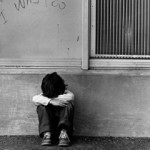
Researchers at King’s College London have published an interesting paper in the American Journal of Psychiatry, which uses data from the Environmental Risk Longitudinal Twin Study; a cohort study of children in England and Wales born in 1994 and 1995.
The research question they posed was whether trauma during childhood such as maltreatment, bullying or accidents was likely to increase the risk of developing psychotic symptoms.
They found that:
- Children who experienced mal-treatment by an adult (relative risk=3.16, 95% CI=1.92-5.19) or bullying by peers (relative risk=2.47, 95% CI=1.74-3.52) were more likely to report psychotic symptoms at age 12 than were children who did not experience such traumatic events.
- The higher risk for psychotic symptoms was observed whether these events occurred early in life or later in childhood.
- The risk associated with childhood trauma remained significant in analyses controlling for children’s gender, socioeconomic deprivation, and IQ; for children’s early symptoms of internalizing or externalizing problems; and for children’s genetic liability to developing psychosis.
- In contrast, the risk associated with accidents was small (relative risk=1.47, 95% CI=1.02-2.13) and inconsistent across ages.
The authors concluded:
Trauma characterized by intention to harm is associated with children’s reports of psychotic symptoms. Clinicians working with children who report early symptoms of psychosis should inquire about traumatic events such as maltreatment and bullying.
Links
Arseneault L, Cannon M, Fisher HL, Polanczyk G, MoffittTE, Caspi A. Childhood trauma and children’s emerging psychotic symptoms: A genetically sensitive longitudinal cohort study. Am J Psychiatry. 2011 Jan;168(1):65-72. [PubMed abstract].
Patricia Cohen, Ph.D. Editorial: Abuse in Childhood and the Risk for Psychotic Symptoms in Later Life. Am J Psychiatry 168:7-8, January 2011.

What is psychosisf not a tempory observation